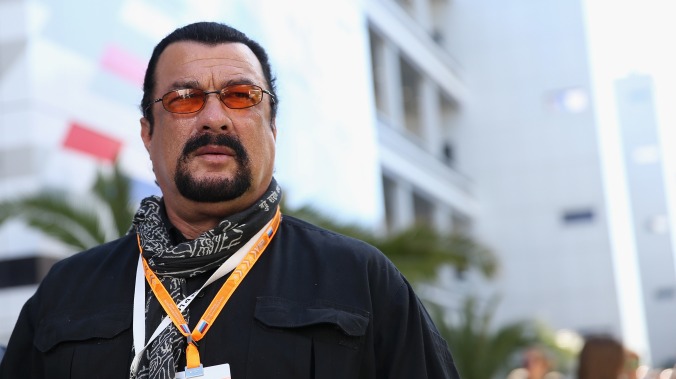Steven Seagal hit with big fine for unlawfully promoting his Bitcoin knockoff

Huh, apparently offering an extremely shady endorsement to an extremely shady product isn’t just a bad business decision, it can also be illegal. Such is the life of Steven Seagal, though, who transitioned away from just being an “actor,” “martial arts master,” and (allegedly) overall crappy person back in 2018 when he became the spokesperson for a new kind of cryptocurrency called “Bitcoiin2G” or “Bitcoiin 2nd Generation” that involved making money through a triangle-shaped plan (that was in no way a pyramid or a scheme). Bitcoiin2G was supposedly protected from the kind of wild value fluctuations that vanilla Bitcoin was known for, but how exactly Bitcoiin2G worked and what involvement Seagal had were unclear. So unclear, in fact, that the state of New Jersey began investigating Bitcoiin2G just a few weeks later, saying it was “fraudulently offering unregistered securities in violation of the Securities Law” and that Seagal’s vaguely defined role with it may have been in violation with state and federal securities laws.
Now, as reported by The Wrap, the Securities And Exchange Commission is demanding that Seagal pay a $314,000 settlement for “unlawfully touting” Bitcoiin2G. Apparently, Seagal was paid $250,000 to put his name on the cryptocurrency and was given another $750,000 in Bitcoiins in exchange for promoting the… fake internet money(?) in a press release and his social media pages. He did all of that without disclosing that he had been paid to do so, which is bad, with the SEC’s Kristina Littman (head of the organization’s Cyber Unit, which surely sounds cooler than it is) noting that potential investors could’ve been duped by Seagal’s promotion of Bitcoiin because they could not “decide whether he may be biased” before handing over their money.
We would argue that it should’ve been pretty obvious whether or not Seagal was biased or paid off, and that anyone who actually considered giving him money for Bitcoiins deserved whatever they got, but that’s why we’re not running the SEC Enforcement Division’s Cyber Unit. Anyway, Seagal did not admit or deny any of the SEC’s findings, but he has agreed to pay this settlement and has been barred from promoting any securities for three years (so now we can all sleep a little more soundly).